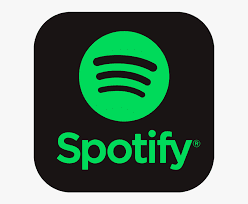Spotify has entered into a definitive agreement to acquire Findaway, a global leader in digital audiobook distribution.
“It’s Spotify’s ambition to be the destination for all things audio both for listeners and creators. The acquisition of Findaway will accelerate Spotify’s presence in the audiobook space and will help us more quickly meet that ambition,” said Gustav Söderström, Spotify’s Chief Research & Development Officer. “We’re excited to combine Findaway’s team, best-in-class technology platform, and robust audiobook catalog with Spotify’s expertise to revolutionize the audiobook space as we did with music and podcasts.”
Findaway works across the entire audiobook ecosystem with a platform and offerings that serve authors, publishers, and consumers of this rapidly growing industry, which is expected to grow from $3.3 billion to $15 billion by 2027.
In addition to offering the largest catalog of distributed titles, Findaway has actively worked to democratize audiobooks through leading technology tools available for independent authors to create and bring their stories to life. Spotify has said that it plans to "build on Findaway’s significant innovation in the space, and we’re going to supercharge its growth, bringing everything Spotify knows around personalization and discovery while also innovating on format, delivery, creator tools, and more."
This acquisition by Spotify will accelerate its entry into the audiobook space and enable Spotify to quickly scale its audiobook catalog and innovate on the experience for consumers, simultaneously providing new avenues for publishers and authors to reach audiences around the globe.
Audiobooks have been the "hot ticket" in the book-selling business for several years. And the trend -- like housing prices -- continues to heat up even more.
In the white-hot bubble of the audiobook market, major publishers such Audible, Hachette Audio, HarperCollins, Macmillan, Penguin Random House, and Simon & Schuster have invested in opening more studios and narrators to speed up production. In 2018, 44,685 new audiobook titles were issued. In 2019, that number jumped to 60,303 – an 18 percent jump in one year. Last year, the number of new audiobook titles topped 70,000.
In 2010, book publishers were selective on which print books were also recorded as an audiobook, primarily because of the cost of audio production, the cost of the manufacture and distribution of CDs, and the uncertainty about sales numbers and profit projections.
No more.
Last year, U.S. audiobook sales generated over $1.2 billion in revenue, increasing 25 percent from 2017.
In fact, 2020 was the first year in which audiobook sales eclipsed sales of e-books by over $250 million.
According to a 2019 survey conducted by Edison Research and Triton Digital, half of all Americans have listened to a podcast and an audiobook. Even more intuitive is a report from the Audio Publisher’s Association that there is a crossover audience between podcasts and audiobooks. In fact, 55 percent of audiobook listeners have listened to podcasts.
For Spotify, this entry into the audiobook market makes perfect sense and strengthens their growing audio ecosystem. The company has investments in streaming music, podcasts, and now audiobooks.
What many media companies have learned from Apple is that customers feel comfortable and secure in a media ecosystem where security, stability, depth of content, quality of content, and multiple delivery systems are in place.
Spotify is building that ecosystem brick by brick.

Comments
Post a Comment
Thank You for your input and feedback. If you requested a response, we will do so as soon as possible.